
Kirsten McCarthy / Cats.com
Human infants, between about 8 to 14 months after birth, start to understand that a verbal word refers to objects in the world around them. A baby, for instance, will hear the word “cat” and associate it with the furry, pointy-eared family pet. And studies suggest that babies learn rapidly.
What about cats, though? Do they have the same ability to quickly learn human words and know what we are talking about? Yes, according to a recent Japanese study. In fact, cats may develop a faster picture-word association than human infants!
The study, conducted by researchers at Azabu University in Japan, was published in late 2024 in the journal Scientific Reports. The researchers conducted two experiments with more than 30 cats participating in each, with some living in cat cafes and others living with owners at home.
Researchers applied the same method of picture-word association used in human infants to the experimental cats, to see if they would behave in a similar manner. In the habituation phase, a voice said a word and showed the cat a picture; the action was repeated several times so the cat could form an association between that word and the object in the picture.
Then, in the test phase, researchers switched the spoken word and the visible object. This alerts the viewer – a baby, or in this case, a cat – that something is off, because it disrupts the picture-word association that has been established. Many of the cats and babies, sensing that something isn’t right and trying to figure it out, stared at the picture for a longer period of time. This supports the hypothesis that cats can learn picture-word association.

A recent Japanese study suggests that cats may form picture-word associations even faster than human infants, hinting they understand more of our words than we think. Melina Grin / Cats.com
“I don’t think this is terribly surprising cat behavior at all,” says Dr. Chris Vanderhoof. “Cats are creatures of habit, so I don’t think it’s strange to find scientific evidence that they can make picture-word associations through repetition (habituation).”
But there’s more: The cats in the study made the association between picture and word in about half the time it would take a human infant!
“Our results reveal that cats make associations with even less exposure,” the study authors wrote. “It is not clear from this study why cats can form associations very quickly.”
Vanderhoof is also not surprised that cats in the study developed picture-word association faster than human infants.
“An adult cat has a more developed brain for its part than a human infant does, and I imagine it can work faster with basic associations like that,” he says. “Naturally, humans will surpass a cat’s ability … certainly by toddler age.”
Yet, Vanderhoof thinks the picture-word association ability is not something we would recognize or need in daily life with our cats, and he hasn’t tested for this skill in his own cats.
“I don’t think this is a required daily function in our interactions with them,” Vanderhoof says. “We don’t ask them to get things for us, like we ask a human household member to do.”
His cats, however, show these abilities by knowing their own names and recognizing familiar environments, even if it’s been a few months since they last came there.

An adult cat’s brain may be quicker than an infant’s at forming basic associations, but by toddlerhood, humans pull far ahead. Melina Grin / Cats.com
“So they do have clear evidence in daily life of recall ability,” Vanderhoof says. “The reality is that our cats have probably developed picture-word associations for lots of things, but like I said, I don’t think it’s something we need them to do, so we don’t really see it day to day.”
As for the study about cats coming from a university in Japan? Well, the Japanese have a passion for cats, so that seems fitting. Whether it’s folklore or anime or real-life pets, cats are revered in Japan. We explore this cultural phenomenon and Japanese cat myths and legends in this article.
If you’re a fan of Japanese culture, perhaps you will consider giving your next cat a Japanese name. We offer a list here of 150 cute Japanese names for cats, including Kyo, Masaru, Kyoshi, Kyoko, and Yuki.
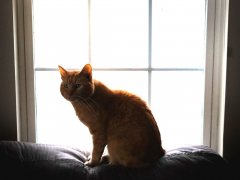
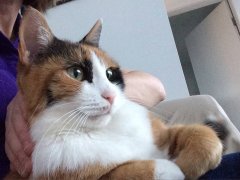
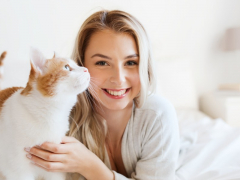
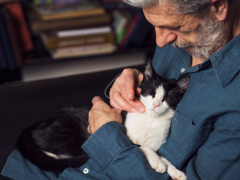


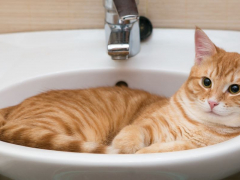
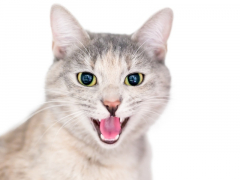
the article on picture association and words is great. My cat responds to gestures we have developed between us. (cat and Me). Come, food time, snack, rub belly, fetch (working on that one), up, just simple ones as Oliver was already going on 10 years when he adopted me. So yeah, not surprising to see this happening.
Sincerely, Michelle McConnell & Oliver